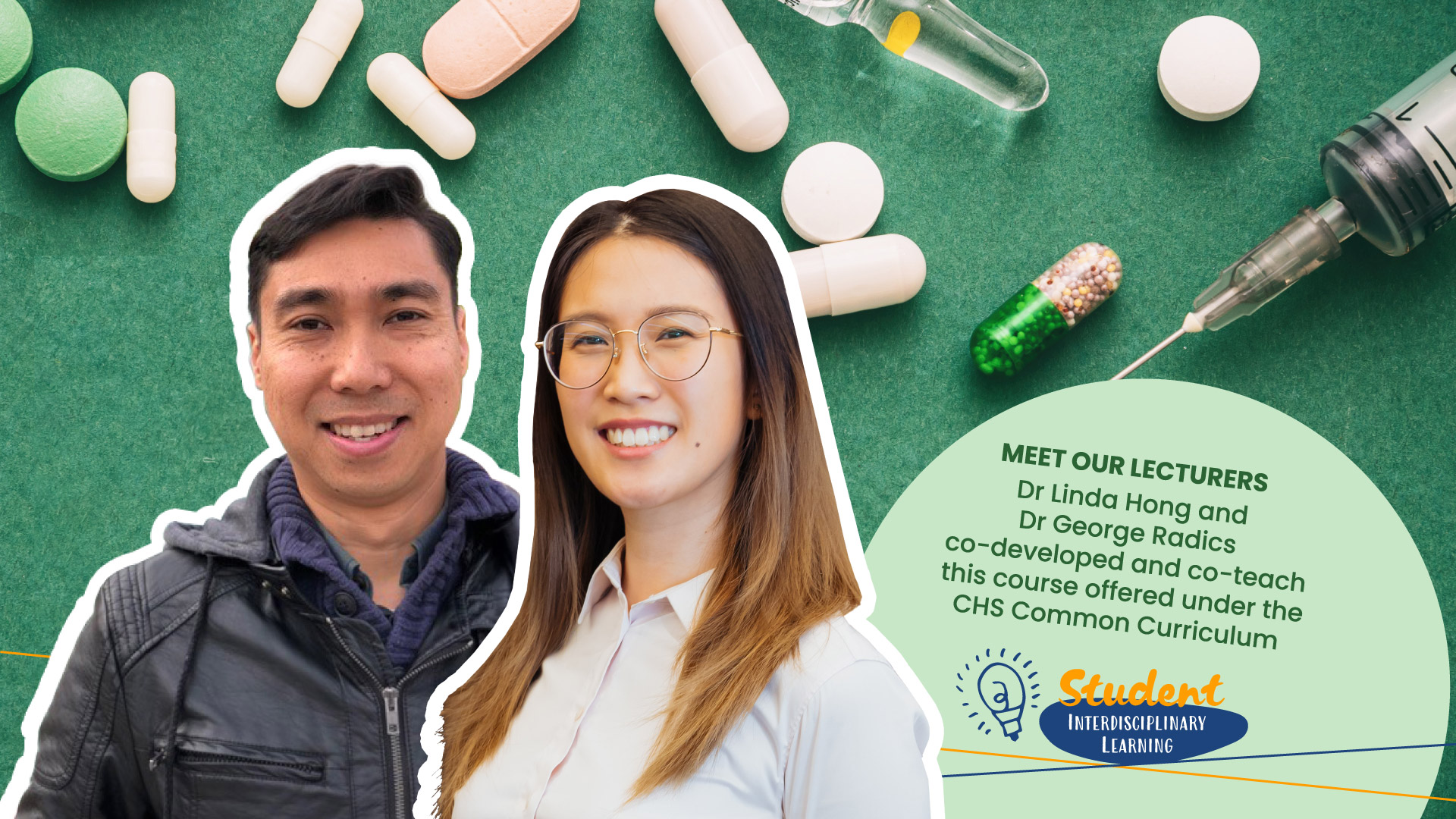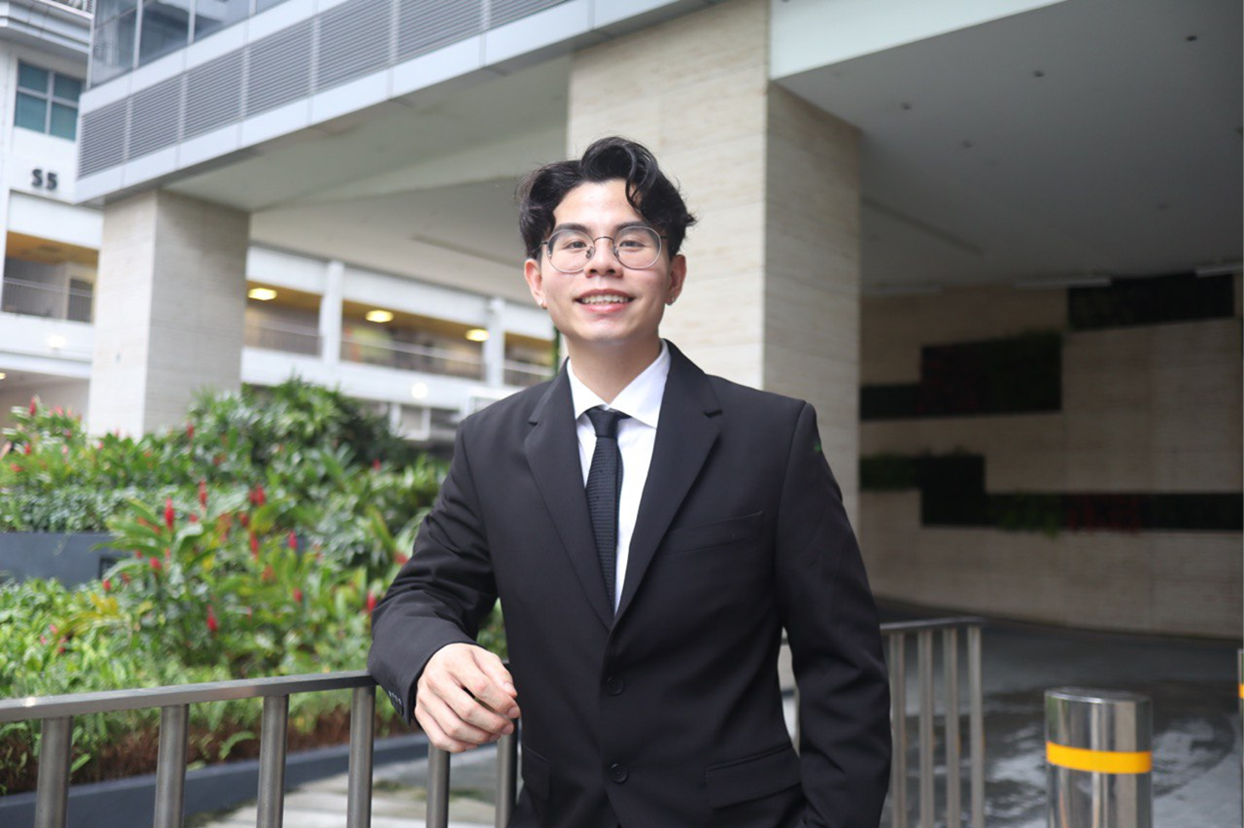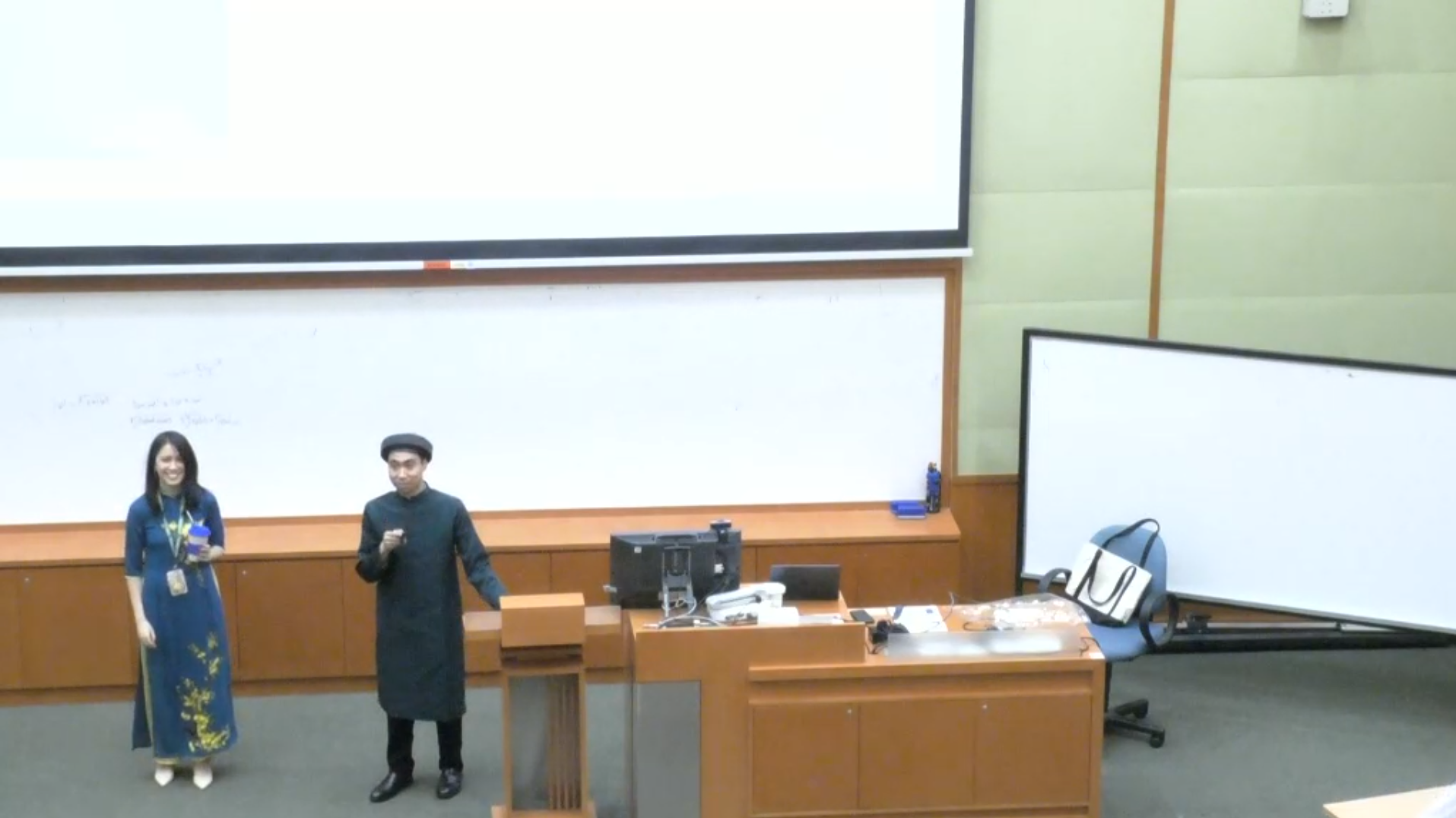The power and peril of drugs
October 1, 2025

Drugs can heal or harm. Indeed, they are powerful forces shaping health, culture, policy and ethics - but what do they really mean for society? In the interdisciplinary course - HS2915 Beyond the Good and Evil of Drugs - offered to College of Humanities and Sciences (CHS) students under the Common Curriculum, students explore the interconnected web that drugs weave across society, examining how they influence people on a pharmacological and social level.
In co-developing this course, Dr Linda Hong from the Department of Pharmacy and Pharmaceutical Sciences, Faculty of Science (FOS) and her collaborator Dr George Radics from the Department of Sociology and Anthropology, Faculty of Arts and Social Sciences (FASS), sought to shed light on how drugs are used and abused, and how drug use is a complex phenomenon that is shaped by social, cultural and structural factors, respectively.
Dr Hong says, “Most people see drugs as a binary of good and evil but it's much more complex. This course was inspired by Nietzche's Beyond Good and Evil, which speaks of how morality is defined by those in power; it parallels how drugs are portrayed in our society.”
Dr Radics adds, “After several years of teaching law and justice courses, I found that the death penalty for drug trafficking is one of the most heated discussion topics in class. Yet students rarely ever read, or presented arguments, beyond the purely legal or political dimension of the topic.”
Find out how our students - Yam Shih Jia (Major in Chemistry, Minor in Pharmaceutical Science), FOS and Kelyn Chan Siqi (Major in Political Science), FASS - gained fresh perspectives on how humanity can navigate its complex and often controversial relationship with drugs.
What inspired you to take this course?

YSJ I wanted to understand drugs beyond just their chemical properties, especially how they affect individuals and society emotionally and socially. The interdisciplinary approach combining pharmaceutical science and sociological perspectives intrigued me.

KC I love crime shows like Narcos and I was really intrigued by the course content! I come from a social science background and I was particularly curious about the pharmaceutical aspect of drugs - how they affect our body and how certain psychedelic properties manifest in physiological effects.
What are your key learnings from the course?
YSJ I found this course intellectually and emotionally impactful. We examined the science behind how drugs interact with the human body, while also exploring sociological and ethical dimensions, such as how drugs can heal, harm, stigmatise or empower communities. I learned to critically evaluate different viewpoints on drug use, recognising both their therapeutic benefits and potential harms, and to approach the topic with empathy. One major takeaway for me was understanding how personal biases and societal narratives can influence drug policies and public opinion.
KC The lectures and sharing equipped me with a multidisciplinary lens in approaching and understanding the domestic and international drug issue. I gained better understanding of the reasons underlying certain policy and legislative decisions made internationally and how they shape our perspectives on drugs today.
What are some of the standout moments in this course?
YSJ A highlight was designing a PCCM (Picture-Centric Concept Map) that visually links concepts like addiction, access, stigma and social inequality to a chosen image. As someone who is not very artistically inclined, this exercise was challenging yet fulfilling. The debate on whether MDMA, a psychoactive drug, should be used to treat depression challenged my assumptions. I conducted research on the risks of using psychoactive substances in therapy and gained insights into the hope such treatments offer when supported by evidence and ethical safeguards.

KC The lectures were unforgettable! One which stood out to me was when Linda and George both dressed up in their ethnic costumes and delivered a lecture on religious and cultural drugs! Through this lecture, I walked away with insights of how history, culture and religion play an integral role in drug use and legislation.
What exposure did you gain to interdisciplinary learning and thinking?

YSJ The course integrates pharmaceutical science with social sciences. I was encouraged to think beyond laboratory results to include human and societal contexts, as well as to connect biological, emotional and sociological factors.
KC The course is intentionally structured to interchange two perspectives each week - pharmacology and sociology. The lectures are thoughtfully crafted so that previous learning points (from the other discipline) are integrated into the content, reinforcing the importance of cross-disciplinary thinking.
How will the learnings come in useful for you in the future?
YSJ These learnings will help me approach drug-related issues with a balanced, informed mindset. I am interested in a career in the pharmaceutical field. I plan to apply this knowledge to contribute to research or communication that considers both science and societal wellbeing.
KC I believe that the multidisciplinary and nuanced perspective developed through this course will equip me with empathy to approach social issues, particularly in understanding the diverse and dynamic viewpoints of the stakeholders involved.
Dr Radics says, “By studying drugs from sociological and scientific angles, students can now engage in deeper and well-rounded discussions on this topic.”
Dr Hong adds, “I wanted this course to be a space where we could discuss the various ways that drugs are used in our society to broaden students' perspectives. In doing so, I hope that they can develop an interdisciplinary awareness to safely and equitably navigate this unpredictable world."

